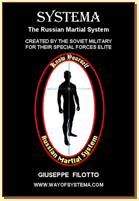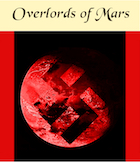First, let me give credit where it is due, the Dimond brothers, at their website produce for the most part, outstanding works of proper Catholic teaching and correct Canon Law. I have directed many people to their websites and various of their articles on many topics, for they tend to be exhaustive in their research and details. So, let me not pretend otherwise.
Unfortunately, and it is very unfortunate, they commit a grave error, which is the (absurd) position of claiming that baptism of desire and baptism of blood are not valid concepts in Catholic Dogma.
They have written at length on the topic and it is quite astonishing to see their usually very logical and precise thinking on so many other topics, take the absurdist and intentionally contrarian position with respect to BOD and BOB, going so far as to literally misrepresent the written word of various encyclicals and so on.
But as I said repeatedly to Jay Dyer and many others, there is no need to go trolling through almost 2000 years of church documents to try and find one that if you squint just right, and you quote out of context, and ignore hundreds of other documents that clarify the situation unambiguously, might allow one to pretend that your absurd position is correct.
All we need is Canon Law. Specifically the one of 1917 because Canon Law is how you apply Church dogma, since it embodies ALL the Church documents and Papal encyclicals ever written prior to 1917. And if we do that we note that wit respect to baptism of desire we find the following canons (reproduced here in full – bold emphasis added).
TITLE 1
On baptism
Canon 737
§ 1. Baptism, the gateway and foundation of the Sacraments, actually or at least in desire is necessary for all for salvation and is not validly conferred except by washing with true and natural water along with the prescribed formula of words.
§ 2. When it is administered in accord with all of the rites and ceremonies that are prescribed in the ritual books, it is called solemn; otherwise, [it is called] non-solemn or private.
Canon 1239
§ 1. Those who die without baptism are not to be accorded ecclesiastical burial.
§ 2. Catechumens who through no fault of their own die without baptism are to be reckoned as baptized.
§ 3. All baptized are to be given ecclesiastical burial unless they are expressly deprived of same by law.
So that’s it. It’s pretty conclusive. Similarly, there exist dozens of documents from various eras and Popes supporting fully the concept of baptism of desire and of blood. But perhaps even more damning for the Dimond brothers are two last pieces of information:
Firstly, there are a number of Saints, recognised as Saints by the Catholic Church who decided there and then to become Catholic and did not have the chance to be baptised before they were put to death. Perhaps the most well knows in the very Saint whose Name I took at Baptism, Saint Adrian’s of Nicomedia.
Ss. Adrian and Natalia lived in Nicomedia during the time of Emperor Maximian in the early fourth century. The twenty-eight-year-old Adrian was head of the praetorium.It is said that while presiding over the torture of a band of Christians, he asked them what reward they expected to receive from God. They replied, “Eye hath not seen, nor ear heard, neither have entered into the heart of man, the things which God hath prepared for them that love him” (1 Corinthians 2:9). He was so amazed at their courage that he publicly confessed his faith, though he had not himself yet been baptised. He was then immediately imprisoned himself. He was forbidden visitors, but accounts state that his wife Natalia came to visit him dressed as a boy to ask for his prayers when he entered Heaven. The executioners wanted to burn the bodies of the dead, but a storm arose and quenched the fire. Natalia recovered one of Adrian’s hands.
So unless the Dimond brothers also want to refute some of the earliest Saints of the Church, it clearly points out that they are in error.
Secondly, I wrote to them years ago and while I am told they reply to most people who write to them, I never received a reply, and as per Roman law: Silence is equivalent to assent. So I presume they know they are in error.
This was my email to them, sent on the 28th June 2020:
Dear Br. Dimond,
I have made very fruitful use of your very detailed writings in my own research and elucidation of the original Catholic doctrines. I have also verified for myself even before I was aware of your own clashes with them, the mendacity and lies spread by people such as John Salza and John Pontrello, Jay Dyer, etcetera.
I have, to date, not found error in the things on your site I have read so far, I do however have a question on baptism of desire. Although I have read what you have written on the subject I am unclear on a rather specific detail of this point of doctrine. I hope if you have the time you will indulge me with a short and direct reply. In order to save time I will also ask my question in the most direct and to the point way, and I hope you understand this is not to be disrespectful but merely to be clear.
My question is as follows:
1. I accept and believe that there is no salvation outside of the Catholic Church. This is dogmatic and I have no issue with it.
2. What I have also seen however is that in a very specific case (detailed below) although in foro externo the baptism has not taken place physically, if it has taken place in foro interno then, although no human being can know this for certain, and as such it is a somewhat moot point from an external, objective perspective, it is Church doctrine that in such a case the church believes the person can still be saved.
3. What is meant by this “baptism” by foro interno is very rare and unlikely but as I understand it would be as follows:
A person who has (relatively suddenly I suppose) become aware that the Catholic Church is the only one true Church and thus become truly desirous of being baptised in its name and doing his or her utmost to get this baptism done as immediately as possible, who however dies before it is factually completed physically, may, in God’s mercy, be accepted into purgatory and eventually heaven. The occurrence would necessarily be extremely rare given that even an atheist can validly baptise in an emergency as long as the correct formula and intent are present, however, this is my current understanding of the situation.
I would very much welcome your comments on this point and/or your view/corrections you feel are necessary to this perspective.
My current view on it is that the above seems congruent with God’s and the Church’s statement that no one goes to Hell through no fault of their own. So even the deceived have had ample opportunity to educate themselves and have not chosen it. However, in the instance of one suddenly awakened to the truth, who does not delay, but who dies prior to the actual baptism, they may in fact be saved. As I hope I explained this would be extremely rare and for all practical purposes unlikely to happen at all, but it seems to me to be in alignment with God’s mercy.
Thank you for your time and I look forward to your eventual response.
Giuseppe
I think that puts the matter to bed once and for all.
It is an important point, because as a result of this error, the Dimond brothers do not recognise ANY priests or Bishops as being valid. Meaning, they are not even Sedevacantists, truly, if there are no valid priests or Bishops left on Earth then the Catholic Church would have ceased to exist and Jesus’s promise would have been a lie. This, is ultimately the real crux of the matter and makes their position schismatic and heretical. I truly hope they repent and return to the fold, for their other work is otherwise excellent.
But it is necessary to ensure people are not deceived into believing this dangerous and absurd position, lest they lose their faith.
I have posted a few other canons concerning baptism below, as they may be of interest.

We also learn that in emergencies literally almost anyone can administer a baptism too.
Canon 742
§ 1. Non-solemn baptism, discussed in Canon 759, § 1, can be administered by anyone, preserving the required matter, form, and intention; when it can be done this way, two witnesses, or at least one, should be used, by which the conferral of the baptism can be proved.
§ 2. If there is a priest present, he is preferred to a deacon, a deacon to a subdeacon, a cleric to layman, and a man to a woman, unless for the sake of modesty it is more becoming that a woman baptize instead of a man, or unless a woman knows the form and manner of baptism better than does a man.
§ 3. It is not permitted that the father or mother baptize their own child, except in danger of death, when there is no one else who can baptize.
And in danger of a miscarriage, even a foetus in the womb can be baptised. This does give me some comfort as I did this when my wife was beginning to have what turned out to be a miscarriage.
Canon 746
§ 1. No one should be baptized in the mother’s womb so long as there is a hope that he can be baptized correctly outside of it.
§ 2. If the head of an infant is exposed and there is imminent danger of death, let him be baptized on the head; later, if he is delivered alive, he should be baptized again under condition.
§ 3. If another part of the body is exposed, and if danger [of death] is imminent, let him be baptized under condition thereupon, and then, if he survives birth, he should be once again baptized under condition.
§ 4. If a pregnant mother dies, and if the fetus is delivered by those who do such things, and if he is certainly alive, he should be baptized absolutely; if there is doubt, [he should be baptized] under condition.
§ 5. A fetus baptized in the womb should be baptized again under condition after [being born].
Canon 759 is reproduced here as it is mentioned in Canon 742, just to give a more complete picture.
Canon 759
§ 1. In case of danger of death, baptism is licitly conferred privately; and if it is conferred by a minister who is neither a priest nor a deacon, he should do only those things necessary for the validity of baptism; if a priest or deacon is available, they should apply, if time allows, the baptismal norms that follow.
§ 2. Outside of danger of death, the local Ordinary should not permit private baptism, unless it is a case of heretics who are being baptized under condition at an adult age.
§ 3. The ceremonies that were omitted in the conferral of the baptism, for whatever reason, should be supplied in a church as soon as possible, except in cases described in § 2.







They’re Feeneyites. I’m not going to say that all Feeneyites are barking mad, if only because I haven’t met all of them, but out of the ones I’ve known, the percentage of crazy has been 100%.
In case you, not being an American, are unfamiliar with the late,
great, excommunicated Fr. Feeney: https://en.m.wikipedia.org/wiki/Leonard_Feeney
“as a result of this error, the Dimond brothers do not recognise ANY priests or Bishops as being valid”
Wait…so they hold that believing in baptism by desire renders a priest invalid? Like where would that stop? If a priest holds anything they disagree with he is rendered invalid?
All the canon law you cited is very interesting because I have seen several Catholics online (maybe they got this from “Vatican Catholic”) in discussion with Prots take the concept of “one baptism” to mean no rebaptism can ever be performed and all baptisms must just be assumed valid, like even if your parents were known conpulsive liars and told you they had you baptized and you doubted it and the church lacked records of it, they claim “one baptism” means you can’t be rebaptized. Yet the canon laws you cited clearly show this is false with this concept of “baptized again under condition.” I guess they think they are owning those Prots who believe infant baptism is invalid and everyone baptized as an infant must be rebaptized; but they really just owned themselves.
Catholic Churchians are really just another bunch of lazy protestants, really. If there is any doubt about your baptism (i.e. if it was performed by a Protestant, or by a Novus Orco fake “priest” then I would absolutely want to get a proper baptism. And as far as I know, most side priests would grant that, at least as a conditional baptism.